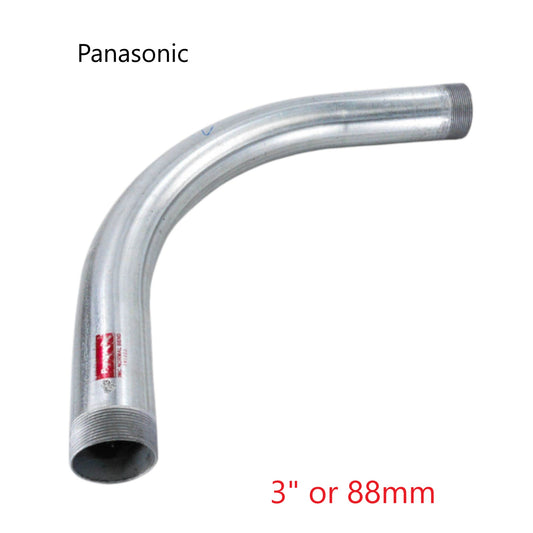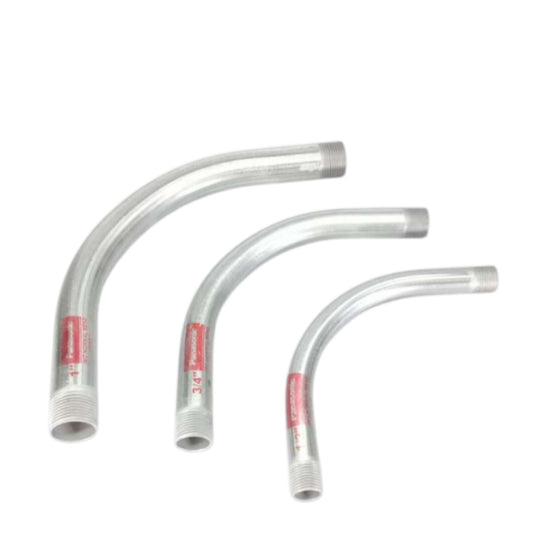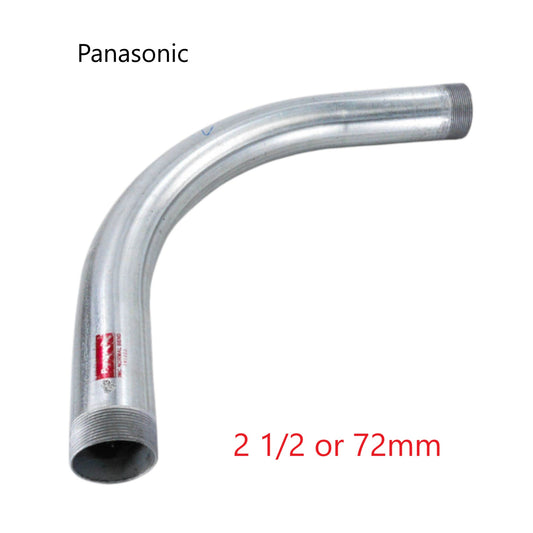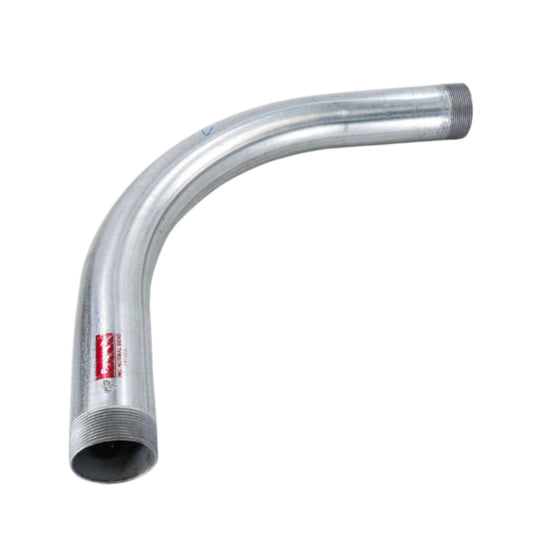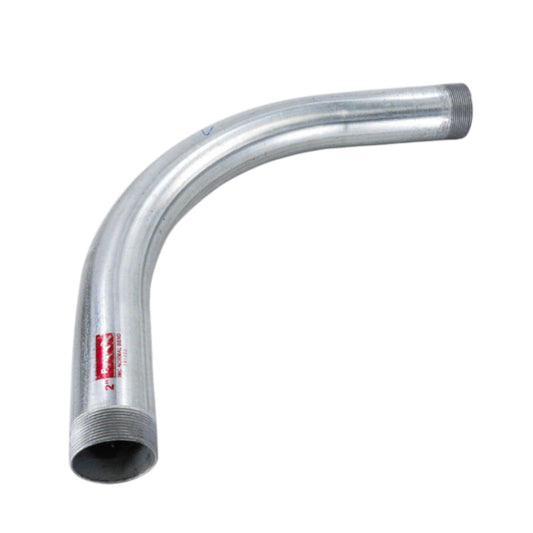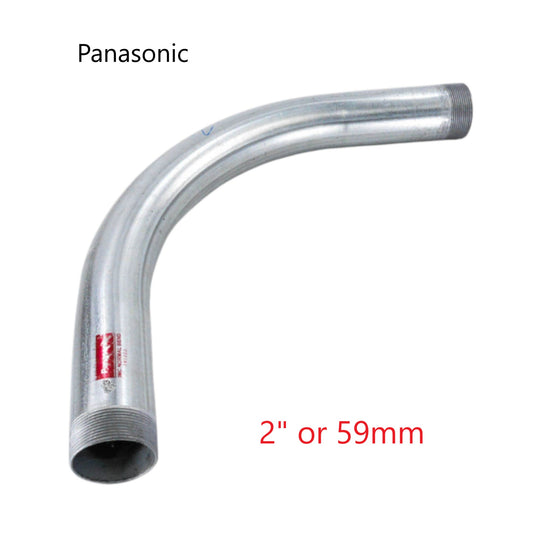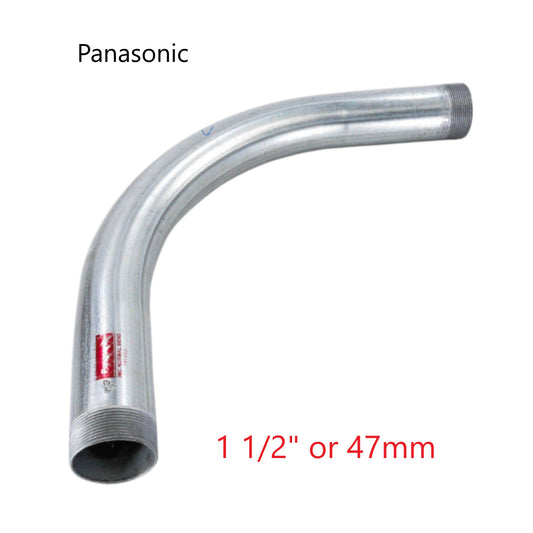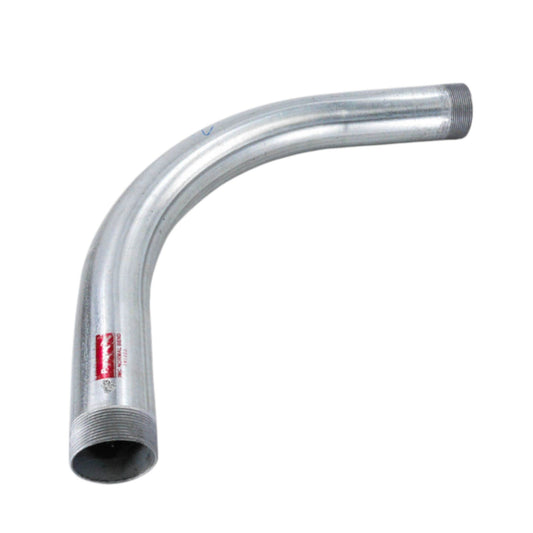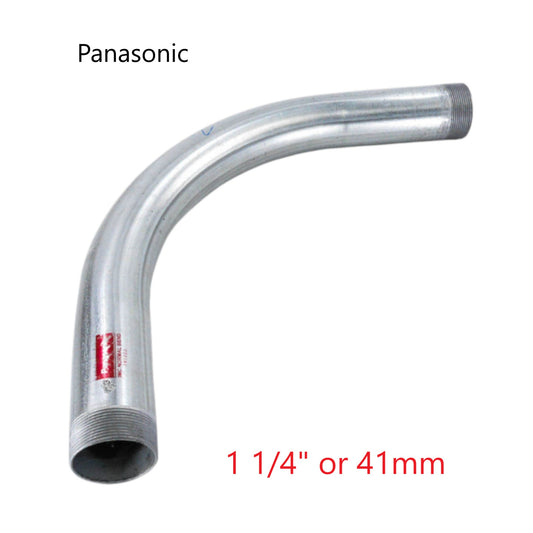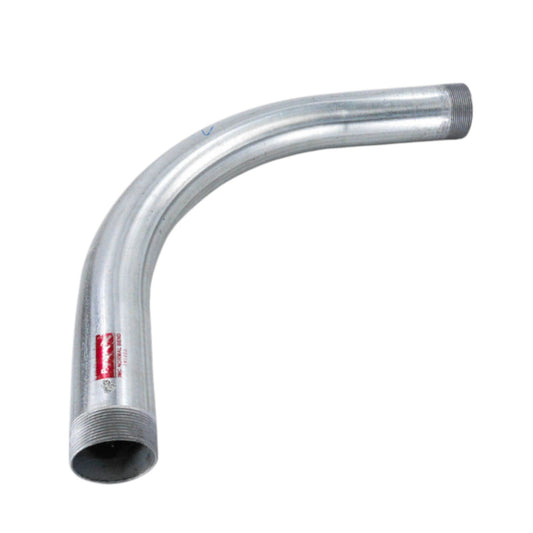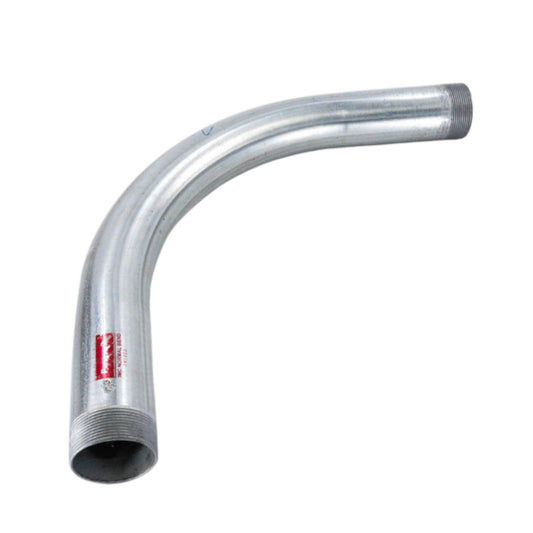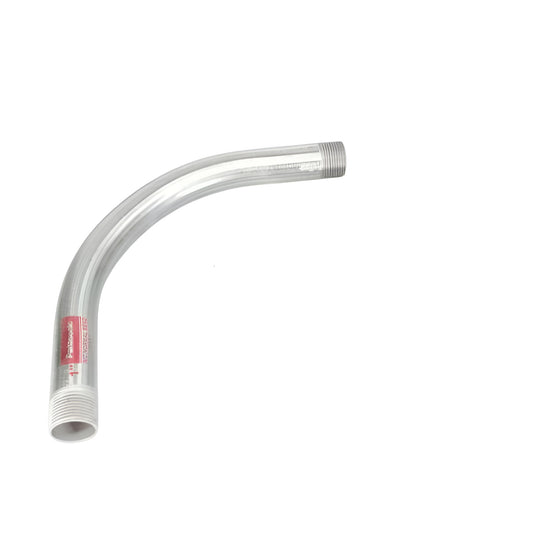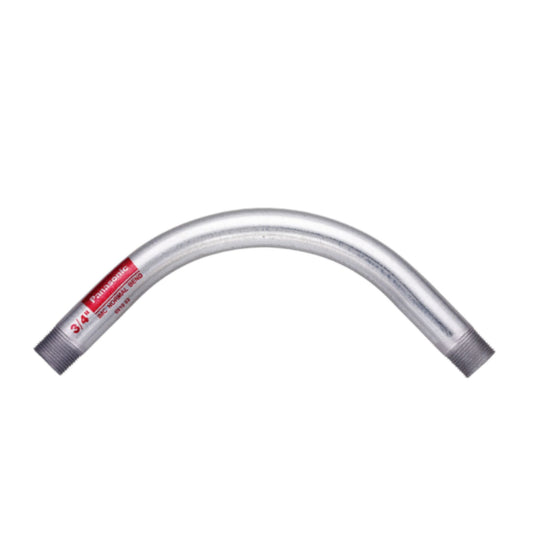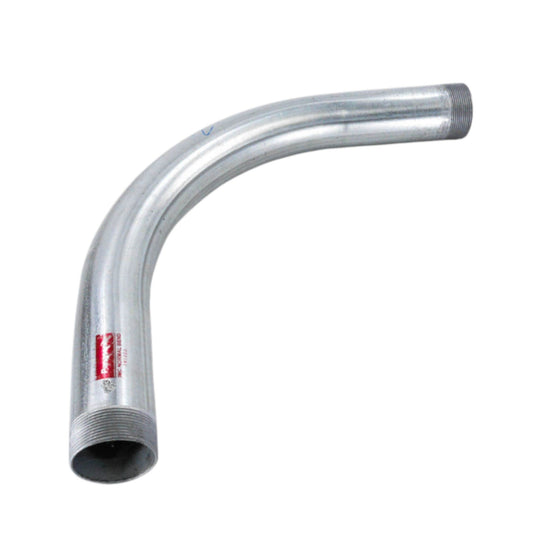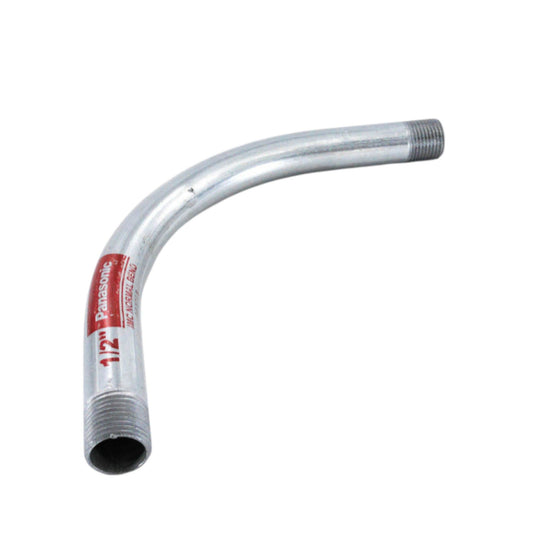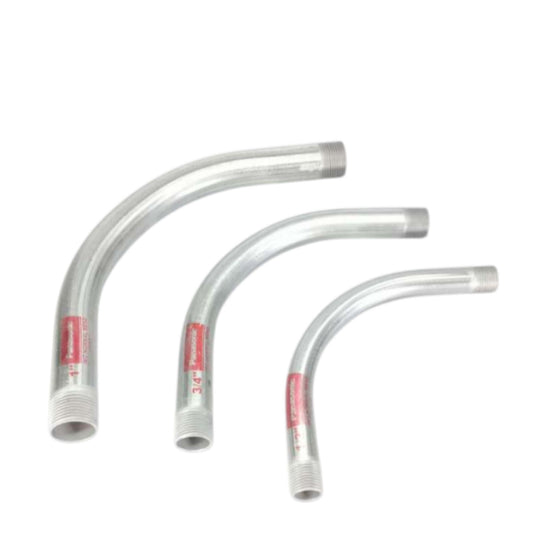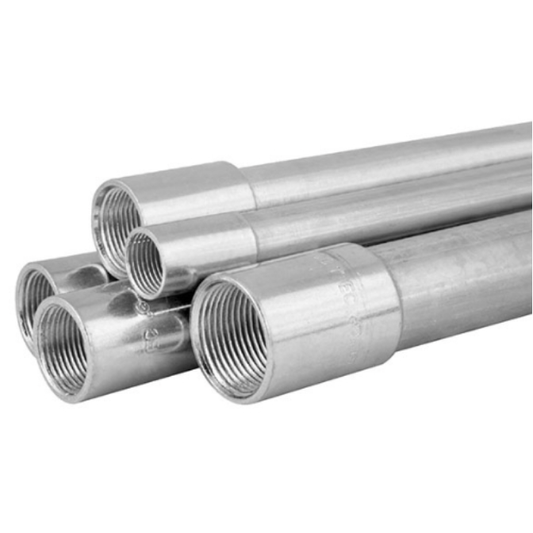Intermediate Metallic Conduit (IMC) is a type of threaded steel tubing used in electrical systems to protect and route electrical wiring. It serves as a durable raceway, ensuring the safety and compliance of electrical installations.
Key Characteristics:
-
Material: Made from galvanized steel, providing robust protection against physical damage, moisture, and corrosion.
-
Rigid Nature: IMC is a rigid conduit, meaning it maintains its shape and provides a strong protective pathway for conductors. While more rigid than Electrical Metallic Tubing (EMT), it offers slightly more flexibility than Rigid Metal Conduit (RMC).
-
Thinner Walls: Compared to RMC, IMC has thinner walls, which makes it lighter and more cost-effective, while still offering excellent protection.
-
Threaded Connections: IMC typically uses threaded connections with fittings like couplings, elbows, and connectors for secure and straightforward assembly.
-
Sizes: Commonly available in trade sizes from 1/2 inch to 4 inches, in standard 10-foot (3.05 meter) lengths.
-
Codes and Standards: Manufactured to standards like UL 1242 and ANSI C80.6, and recognized by the National Electrical Code (NEC) Article 342 as an equipment grounding conductor.
-
Corrosion Protection: Often features a hot-dip galvanized exterior and an organic or proprietary corrosion-resistant coating on the interior to facilitate wire pulling and enhance durability.
Common Applications:
IMC is a versatile choice for a wide range of electrical installations in both commercial and industrial settings, balancing robust protection with a more manageable weight and cost compared to RMC.
-
Commercial Buildings: Used for running branch circuit wiring, feeder wiring, and electrical distribution systems in offices, retail stores, and shopping centers.
-
Industrial Environments: Ideal for protecting electrical wiring in factories, manufacturing plants, and other industrial facilities where heavy machinery and equipment are present, offering resistance to physical impact.
-
Outdoor Installations: Suitable for outdoor applications where wiring needs protection from environmental factors, such as outdoor lighting, security systems, and signage, especially with rain-tight fittings.
-
Mechanical Rooms: Frequently used in building mechanical rooms to protect wiring connected to HVAC systems and other mechanical equipment.
-
Data Centers: Provides reliable power distribution and protection for critical electrical wiring in data centers and server rooms.
-
Concealed or Exposed: Can be installed either exposed or concealed within walls, ceilings, or floors.
-
Underground Applications: Can be buried underground for utilities or lighting, offering protection from the elements and physical damage.


